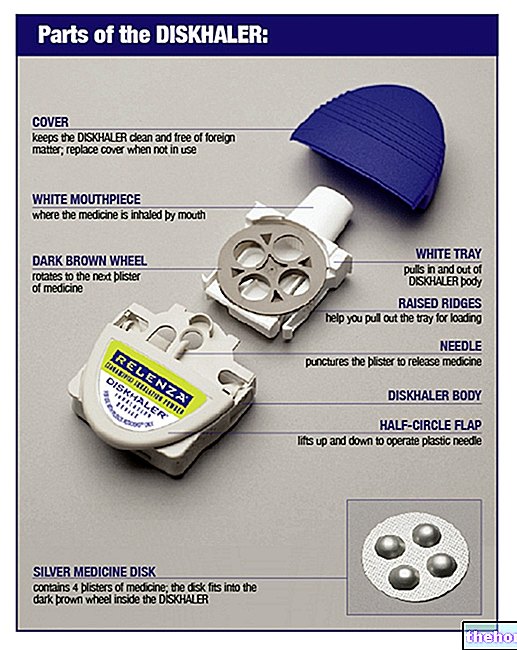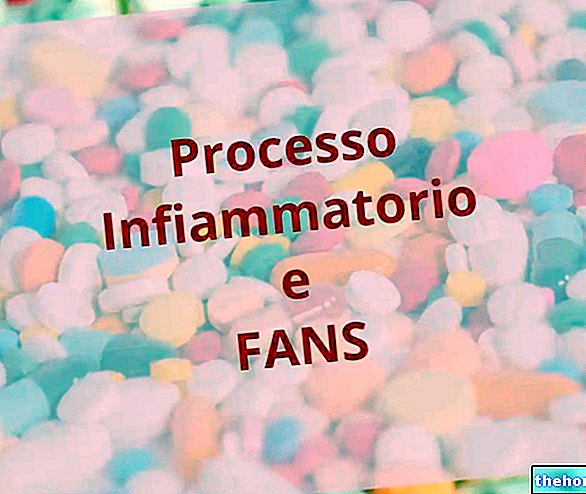FOLINA ® is a folic acid based drug.
THERAPEUTIC GROUP: Antianemic - folic acid and derivatives.

Indications
FOLINA ® is indicated in the treatment of all those conditions characterized by increased demand for folic acid, insufficient absorption, reduced use or reduced dietary intake of this vitamin (B9).
One of the most common pathologies associated with folic acid deficiency is megaloblastic anemia.
Mechanism of action FOLINA ® Folic acid
Folic acid, known as vitamin B9, is an element of fundamental importance for human life, since the first days of embryonic development. Not being able to be synthesized by the body, dietary intake is necessary through green leafy vegetables, fruit , legumes and meat, which generally make it possible to meet the needs of this vitamin.
Taken orally, the folic acid present in FOLINA is absorbed in the jejunal tract of the intestine and transported, through the bloodstream, directly to the liver, which represents the organ of greatest deposit.
From the liver it is subsequently distributed to various tissues, where it is involved in numerous reactions involved in amino acid and nucleic acid metabolism. These reactions produce a very important implication in physiological and clinical terms, so as to allow folic acid to re-enter in all respects the prevention of cardiovascular, neurodegenerative, inflammatory and neoplastic pathologies.
A folate deficiency affects the patient's state of health, with a feeling of tiredness and chronic fatigue, an increase in cardiovascular risk and above all megaloblastic anemia, characterized by the presence in the circulation of immature erythrocyte precursors, with large dimensions and reduced transport capacity of oxygen.
In the latter case, the differential diagnosis from Vitamin B12 deficiency macrocytic anemia is very important.
Studies carried out and clinical efficacy
FOLATES AND HYPERTENSION
JAMA 2005; 293: 320-329 Folate intake reduces the risk of hypertension in young women
Forman JP et al.
The pleiotropic effects of folates - important not only in correct erythrocyte differentiation, but also in the protection of the vascular endothelium - have allowed these vitamins to be fully included among the molecules with a preventive action against hypertension. This important study, in fact, has shown how the intake of about 1mg of folate per day can significantly reduce the incidence of hypertension in young women.
2. COMBINED FOLIC ACID / IRON TREATMENT IN THE TREATMENT OF "MALARIA ANEMIA
Am J Trop Med Hyg. 2010 Oct; 83: 843-7.
A comparison of iron and folate with folate alone in hematologic recovery of children treated for acute malaria.
Race SN, Madaki AJ, Thacher TD.
Anemia is one of the most common complications of plasmodia infection. Malaria is in fact responsible for the "lowering" of the hematocrit over 33%. In this study it was shown how the synergy between folate (5mg / day) and iron (2mg / kg / day) can significantly improve the anemic picture, compared to monotherapies.
3. ADVICE FOR THE PREVENTION OF ANEMIA
Nutr J. 2010 Sep 23; 9:40.
Efficacy of different strategies to treat anemia in children: a randomized clinical trial.
Rosado JL, González KE, Caamaño Mdel C, García OP, Preciado R, Odio M.
The study compared different supplementary protocols - with iron, folic acid + iron, micronutrients, food powders and fortified foods - in the prevention of anemic condition in children.
The most encouraging results were recorded with the combined intake of folic acid and iron, which ensured a significant increase in blood hemoglobin concentrations without the development of particular adverse reactions, primarily diarrhea, recorded with other supplementary protocols.
Method of use and dosage
FOLINA ® soft capsules of 5 mg of folic acid: it is generally recommended to take 1-3 capsules per day.
FOLINA ® 15mg injectable solution of folic acid: it is recommended to take one ampoule a day intramuscularly.
In both cases, given the much higher dosages compared to supplementary practice (which can reach a maximum concentration of 1 mg), and given the use in the medical-therapeutic field, medical advice and any dosage correction are strictly necessary. suggested by the manufacturer.
IN ANY CASE, BEFORE TAKING FOLINA ® Folic Acid - YOU NEED THE PRESCRIPTION AND CONTROL OF YOUR DOCTOR.
Warnings FOLINA ® Folic acid
Before taking FOLINA ® it is necessary to ascertain the anemic picture, and to exclude other possible forms of anemia, clinically similar but etiologically distinct (such as that due to vitamin B12 deficiency). In the latter case, the intake of folic acid alone does not it would be able to improve the anemic picture. For the same reason it would not be useful even in the treatment of oncological anemia.
During the treatment with FOLINA ® it is advisable to monitor the haematological picture, in order to ascertain the improvement of the anemic condition and the efficacy of the therapy.
FOLINA ® does not alter the normal ability to drive vehicles and use machines.
PREGNANCY AND BREASTFEEDING
Although folic acid represents an important factor for correct fetal development, especially in the first 30 days of pregnancy, such high dosages (higher than 4mg / day) have never been tested, and could be associated with particular side effects. For this reason the use of FOLINA ® is contraindicated both during pregnancy and during breastfeeding.
Interactions
The concomitant administration of non-steroidal anti-inflammatory drugs and folic acid could cause an alteration of the metabolism of folic acid, with possible reduction of the therapeutic efficacy.
Anticonvulsants and antiepileptics can reduce the intestinal absorption of folic acid, and at the same time high dosages of folic acid can reduce the therapeutic efficacy of these drugs.
Some chemotherapy or immunosuppressive drugs, used in the treatment of autoimmune diseases, may have an "antipholic activity.
Contraindications FOLINA ® Folic acid
FOLINA ® is contraindicated in case of hypersensitivity to folic acid or to one of its excipients.
Undesirable Effects - Side Effects
FOLINA ® appears to be well tolerated; the most commonly described side effects are nausea, abdominal pain, general malaise, irritability and anorexia.
Episodes of hypersensitivity are rare.
Note
FOLINA ® can only be sold under medical prescription.
The information on FOLINA ® Folic Acid published on this page may be out of date or incomplete. For a correct use of this information, see the Disclaimer and useful information page.




























